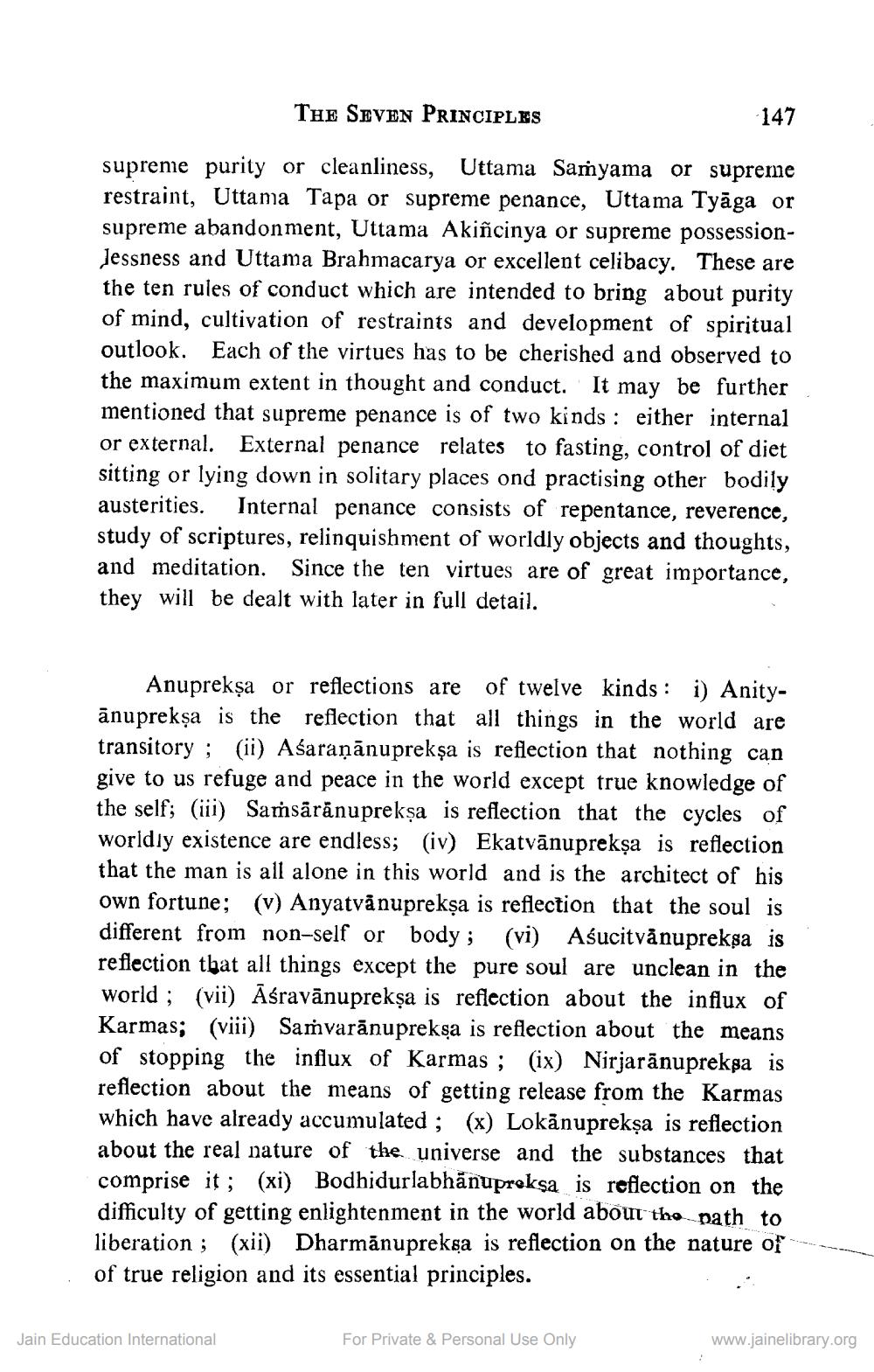________________
THE SEVEN PRINCIPLES
147
supreme purity or cleanliness, Uttama Samyama or supreme restraint, Uttama Tapa or supreme penance, Uttama Tyāga or supreme abandonment, Uttama Akiñcinya or supreme possessionJessness and Uttama Brahmacarya or excellent celibacy. These are the ten rules of conduct which are intended to bring about purity of mind, cultivation of restraints and development of spiritual outlook. Each of the virtues has to be cherished and observed to the maximum extent in thought and conduct. It may be further mentioned that supreme penance is of two kinds : either internal or external. External penance relates to fasting, control of diet sitting or lying down in solitary places ond practising other bodily austerities. Internal penance consists of repentance, reverence, study of scriptures, relinquishment of worldly objects and thoughts, and meditation. Since the ten virtues are of great importance, they will be dealt with later in full detail.
Anuprekṣa or reflections are of twelve kinds: i) Anityānuprekṣa is the reflection that all things in the world are transitory ; (ii) Aśaraṇānuprekşa is reflection that nothing can give to us refuge and peace in the world except true knowledge of the self; (iii) Samsāränupreksa is reflection that the cycles of worldly existence are endless; (iv) Ekatvānuprekșa is reflection that the man is all alone in this world and is the architect of his own fortune; (v) Anyatvānuprekșa is reflection that the soul is different from non-self or body; (vi) Asucitvānupreksa is reflection that all things except the pure soul are unclean in the world ; (vii) Aśravānuprekșa is reflection about the influx of Karmas; (viii) Samvarānupreksa is reflection about the means of stopping the influx of Karmas ; (ix) Nirjarānupreksa is reflection about the means of getting release from the Karmas which have already accumulated; (x) Lokānuprekșa is reflection about the real nature of the universe and the substances that comprise it; (xi) Bodhidurlabhānupreksa is reflection on the difficulty of getting enlightenment in the world about the path to liberation ; (xii) Dharmānupreksa is reflection on the nature of of true religion and its essential principles.
Jain Education International
For Private & Personal Use Only
www.jainelibrary.org




